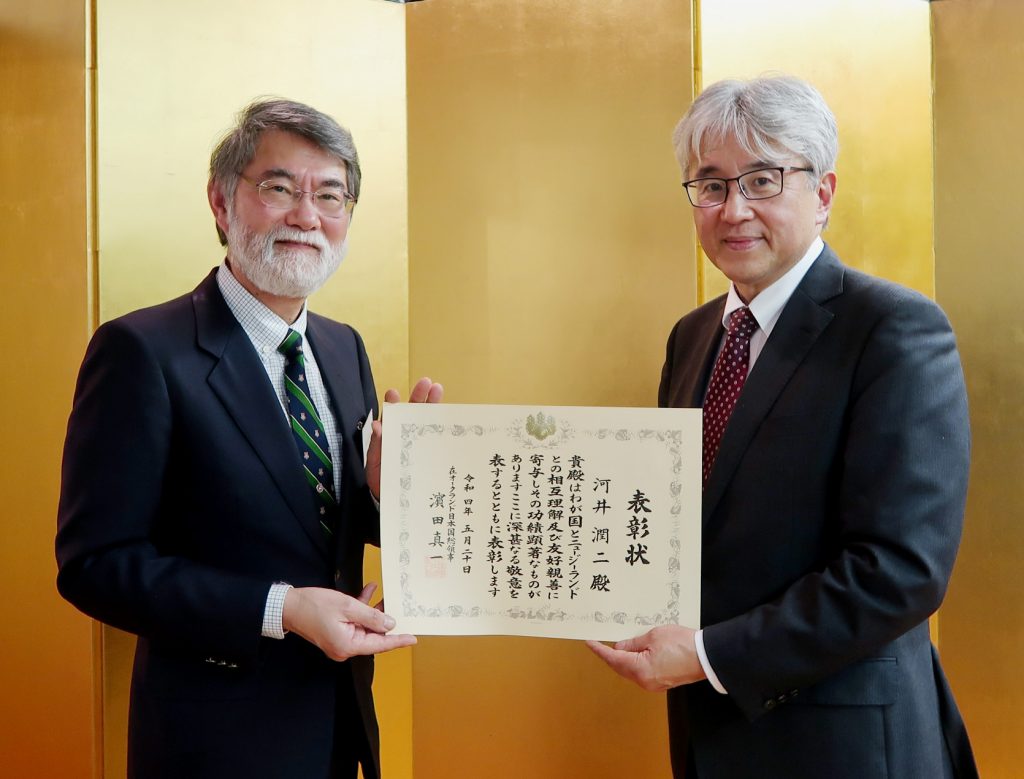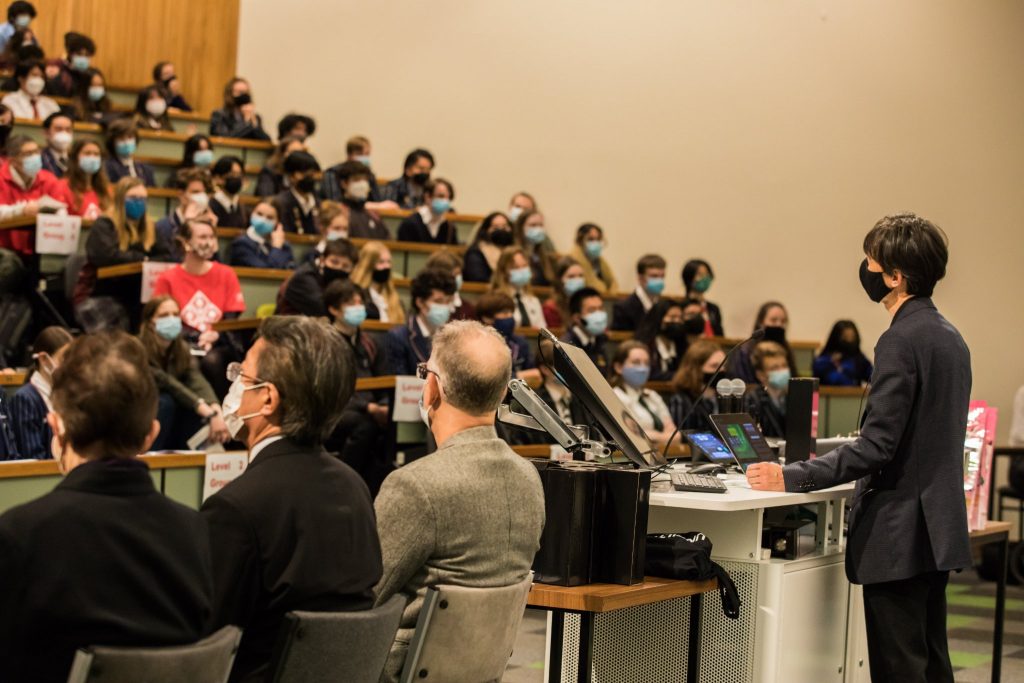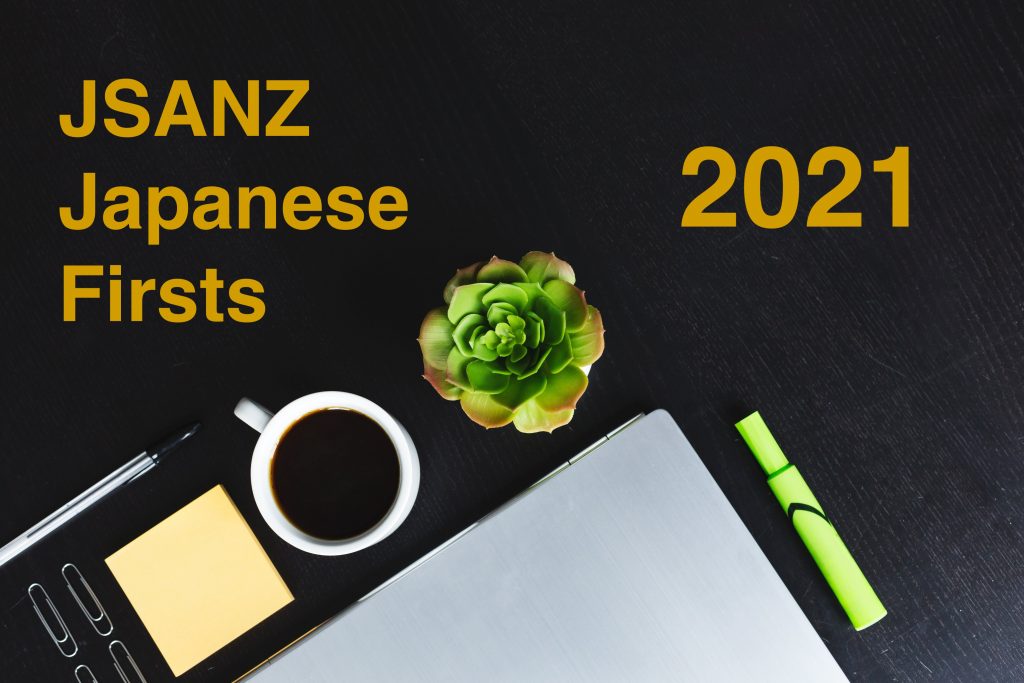
JSANZ is very proud to announce that Mrs Dallas Nesbitt, former Vice President of Japanese Studies Aotearoa New Zealand (JSANZ) and former Senior Lecturer in the School of Language and Culture, Auckland University of Technology, has been awarded the Order of the Rising Sun, Gold Rays with Rosette for her contributions to promoting academic exchanges and mutual understanding between Japan and New Zealand, in the 2022 Autumn Conferment of Decorations announced by the Japanese Government.
SUMMARY OF CONTRIBUTIONS
Mrs Dallas Nesbitt has been dedicated to Japanese language education in New Zealand for around 40 years.
Mrs Nesbitt was involved in establishing the Japanese course at Auckland University of Technology (AUT) in 1984 and since then has played a central role in developing Japanese language education at AUT and has contributed to people to people exchange through educating students to become a bridge between Japan and New Zealand. She has also contributed to the development of Japanese language education through research activities into Japanese language education methodology, focusing on the study of Kanji and learner motivation, in addition to promoting the Japanese language across various networks, and writing a Japanese textbook
In addition, Mrs Nesbitt is active in furthering Japanese language education and Japan research in New Zealand. She was involved in the establishment of New Zealand’s first national network organization of tertiary level Japanese language educators and researchers, Japanese Studies Aotearoa New Zealand (JSANZ) and is currently engaged in promotional activities for Japanese culture and the achievements of this organization. https://www.auckland.nz.emb-japan.go.jp/files/100414957.pdf
The full list of Conferment of Decorations on Foreign Nationals is published at (Ministry of Foreign Affairs Webpage)
https://www.mofa.go.jp/mofaj/gaiko/protocol/jokun.html
(Japanese)
https://www.mofa.go.jp/announce/info/conferment/index.html
(English)


